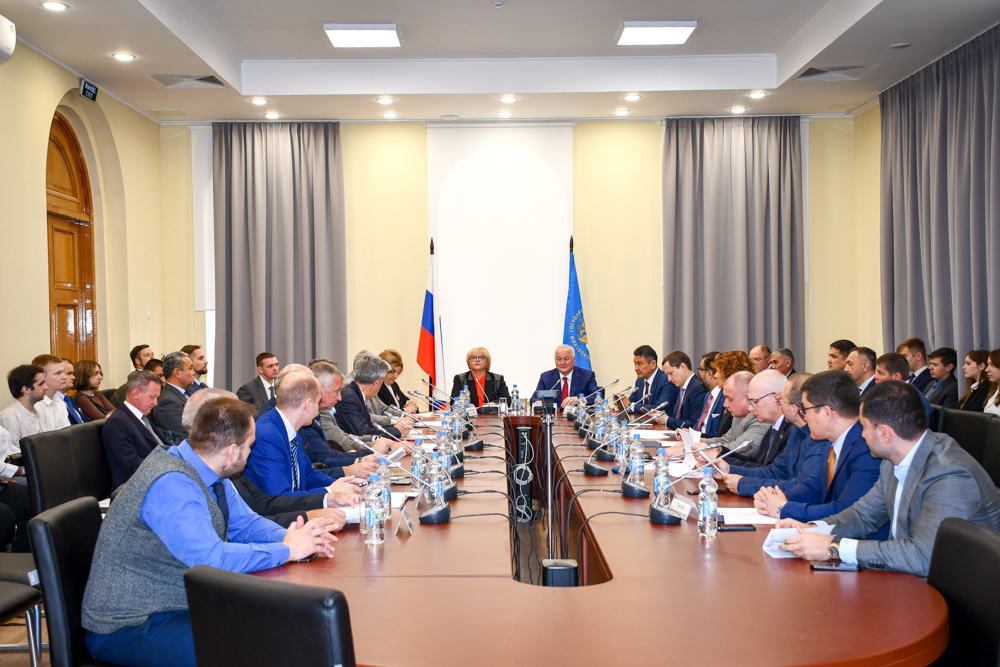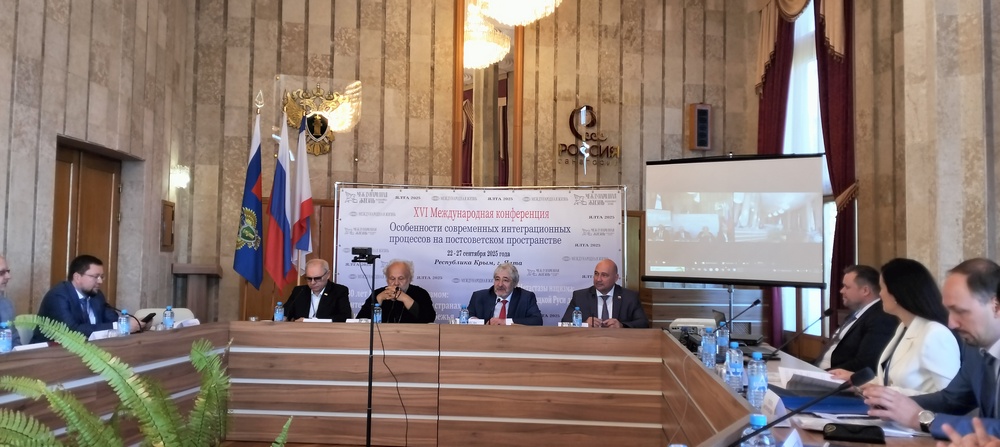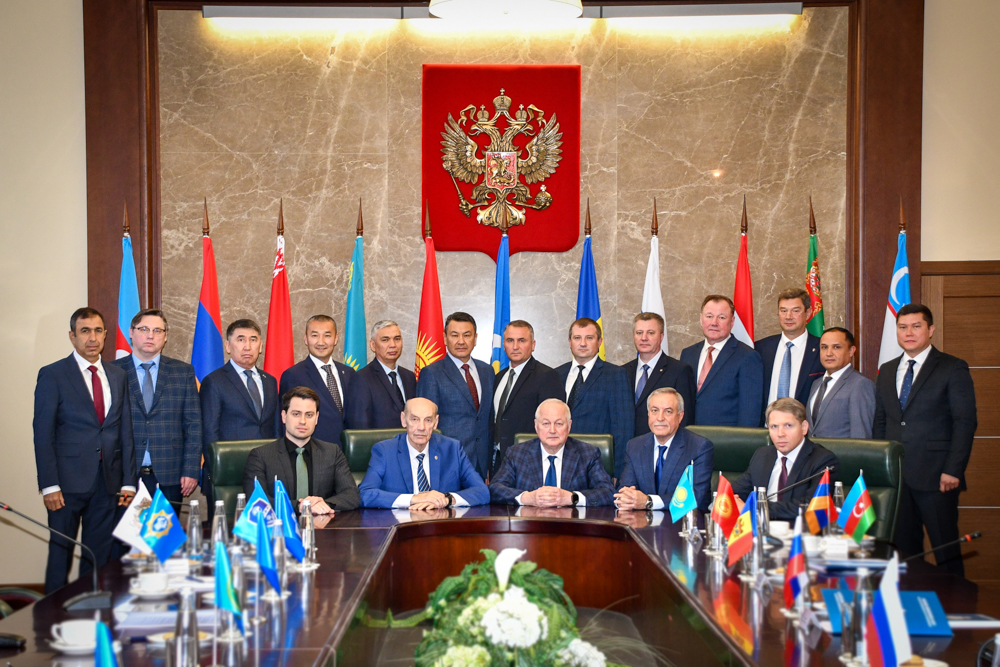May 4, 2023

An extended plenary meeting of the Scientific-Advisory Council at CIS ATC was held in Moscow on May 4, 2023.
The meeting brought together representatives of:
the competent authorities and their educational institutions of 8 countries, including Azerbaijan, Armenia, Belarus, Kazakhstan, Kyrgyzstan, Russia, Tajikistan, and Uzbekistan;
working structures of 8 CIS bodies, namely Council of heads of security agencies and special services, Council of border troops commanders, Office of fight on organized crime and other dangerous types of crimes in the territory of the CIS member-states, Council of Inter-Parliamentary Assembly, Council of ministers of defense, Coordinating service of prosecutor generals, Council of heads of migration authorities, Council of heads of financial intelligence units;
5 scientific and educational organizations, including Academy of military sciences, Institute of state and law of the Russian academy of science, Moscow state university named after M.V. Lomonosov, Moscow state linguistic university, University of prosecutor office of the Russian Federation.
executive bodies of 3 international organizations, including Regional anti-terrorist structure of Shanghai cooperation organization, Collective Security Treaty Organization, Eurasian group on combating money laundering and financing of terrorism .
A high-level delegation of the SCO including three deputy directors from Republic of India, Kyrgyz Republic, Republic of Tajikistan is noteworthy.
In his opening remarks the CIS ATC’s Head Colonel General E.S. Sysoev took a note of the dynamically changing international situation and varying security environment which demands adequate reflection in the system of measures undertaken by the CIS states in countering terrorism and extremism, build-up of efforts in the field of scientific and methodological support.
The meeting reviewed improvement of organizational and legal frameworks of the anti-terrorist efforts in the CIS area, preventive work, including among minors and youth, as well as countering the proliferation of terrorist and extremist ideas, criminal use of contemporary information and engineering achievements.
The meeting participants noted that modern terrorism featured complex network structure that demanded crosscutting application of norms of variable law branches (including civil, tax, migration law, etc.) in countering its manifestations.
Current legal frameworks of counter-terrorist cooperation of the CIS member-states which fail to fully cover all available lines of cooperation need to be constantly improved.
Countering proliferation of radical ideas and involvement of citizens into terrorist and extremist activity including through the Internet remains a burning issue.
Therefore it is important to timely exchange information on the forms and methods of illegal activity in the Internet, best national practices in neutralization of the publicity influence of terrorist organizations on the youth audience, as well as practices of reintegration and resocialization of persons convicted for terrorist and extremist crimes.
Active development of ICT provides facilities for extended use of artificial intelligence, including for pursuing illegal purposes. Among emerging threats are fake payment service providers and digital transformation of the mechanisms and channels of terrorism financing.
During the meeting the participants also discussed topical issues of countering terrorism and extremism which demand scientific research. The CIS base organization for research of terrorist and extremist manifestations issues was advised to adjust the Advanced program of scientific researches in countering terrorism and other manifestations of extremism for 2023–2027 with due regard for the proposals made by the competent authorities of the Commonwealth states and their educational institutions and think tanks.
The event was held in the atmosphere of interesting exchange of opinions and constructive dialog.






















































